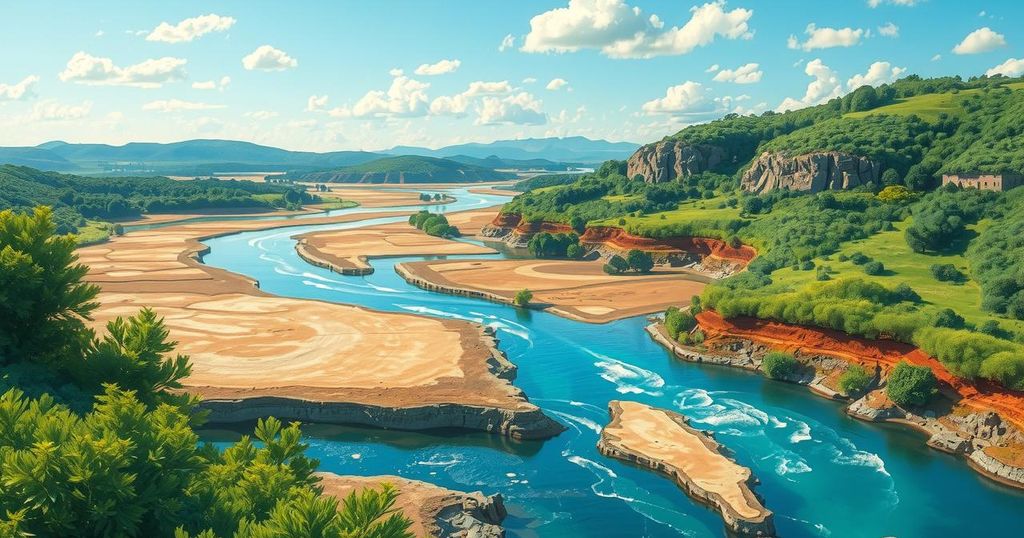Brazil is losing significant surface water, primarily due to climate change and land conversion for agriculture. The country has lost 400,000 hectares of freshwater from 2022 to 2023, amounting to a total loss of 2.4 million hectares since 1985. Key areas affected include the Amazon and the Pantanal wetlands, necessitating urgent public policy reforms ahead of the COP30 climate conference in November.
Brazil, which possesses 12 percent of the world’s freshwater reserves predominantly in the Amazon, is experiencing a significant decline in its natural surface water. This trend is attributed to both climate change and the conversion of forests into agricultural land, as highlighted in a recent report. From 2022 to 2023, Brazil lost 400,000 hectares of aquatic surface water, an area comparable to the size of Rhode Island, according to the MapBiomas monitoring platform.
Over the past 16 years, only the year 2022 registered an increase in surface water. Since 1985, approximately 2.4 million hectares of river and lake surfaces have diminished due to factors such as drought, urban development, and excessive aquifer extraction. Juliano Schirmbeck, the coordinator of the MapBiomas Agua report, stated, “The dynamics of land occupation and use, along with extreme climate events caused by global warming, are making Brazil drier.”
With Brazil scheduled to host the COP30 UN climate conference in November in Belem, the urgency for adaptive water management strategies has never been greater. Almost two-thirds of Brazil’s surface water exists in the Amazon, which is essential for absorbing greenhouse gases and regulating the global climate.
The report also noted that last year, the surface water area in the Amazon decreased by 4.5 million hectares compared to 2022, equivalent to the area of Denmark. Additionally, the Pantanal wetlands, which faced severe drought and wildfires last year, experienced a reduction in water surface area of approximately 61 percent below the average since 1985. Although human-made reservoirs and dams have increased by 54 percent since 1985, they have failed to compensate for the significant loss of natural freshwater sources.
In summary, Brazil is facing a critical decline in its natural surface water due to climate change and agricultural land conversion. The alarming statistics underscore the necessity for immediate action regarding adaptive water management and public policy reform. With the upcoming COP30 climate conference, there is a heightened need for collaborative efforts to address this pressing issue affecting Brazil’s vital freshwater resources.
Original Source: www.ndtv.com






